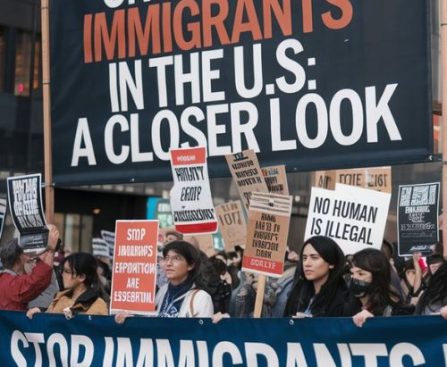Boeing, one of the world’s largest aerospace companies, has been making headlines recently due to its financial performance, operational challenges, and market fluctuations. For those keeping a close eye on the company’s shares (NYSE: BA), the latest updates offer a mix of both caution and optimism. Financial Performance Update In its latest financial report for Q4 2024, the company revealed a significant drop in revenue, down by 26.4% year-over-year to $16.21 billion. Boeing also reported a loss of $2.53 per share, compared to a $0.47 loss in the same period last year. This decline highlights the challenges it faces in stabilizing its operations amid supply chain disruptions and production delays. Despite these challenges, Boeing remains committed to its long-term goals, including ramping up production of its 737 MAX jets and improving delivery schedules. Production and Delivery Challenges A major concern has been delays in delivering the 737 MAX aircraft. Recently, Ryanair, a key customer, announced it would reduce its passenger forecast for 2026 due to these delays. While this has caused some turbulence, it also underscores the high demand for its aircraft, which could bode well for long-term growth if production challenges are addressed. Stock Market Performance As of January 28, 2025, the stock price stands at $176.13, reflecting a slight increase of 0.55% from the previous close. Shares have shown volatility in recent months, influenced by fluctuating investor confidence, supply chain issues, and global economic uncertainties. Recovery Strategies To counter its challenges, the company is focusing on: Additionally, Boeing is reportedly working on securing $35 billion in new funding to support its recovery plans and future projects. The Bigger Picture Despite current hurdles, the company remains a dominant player in the aerospace and defense industry. The demand for commercial aircraft is expected to grow significantly in the coming years, driven by increasing global air travel and fleet upgrades. This positions Boeing well for long-term recovery and growth, provided it can resolve its operational challenges. Takeaway for Investors The company’s recent performance may seem concerning, but its long-term potential remains strong. As Boeing works through its production and delivery issues, its shares could present an attractive opportunity for those willing to ride out the near-term volatility.
The United States has long been a land of opportunity, attracting people from all over the world seeking better lives. However, immigration, particularly illegal immigration, has been a controversial topic for decades. In recent years, the U.S. government has taken a stricter approach to illegal immigration, leading to large-scale crackdowns, deportations, and heated debates across the country. The Scale of the Current Crackdown In one of the largest operations to date, U.S. authorities have arrested 538 individuals suspected of being in the country illegally. These arrests are part of a broader effort to strengthen border security and enforce immigration laws. Many of these individuals face deportation, with some already being sent back to their countries of origin via military planes. This operation highlights the government’s determination to address illegal immigration comprehensively. Supporters argue that such actions are necessary to maintain the rule of law and protect national security. On the other hand, critics point out the human cost of these crackdowns, emphasizing the disruption to families and the harsh conditions many immigrants face during detention and deportation. Why is the Crackdown Happening Now? The U.S. administration has cited several reasons for these intensified efforts: The Human Side of the Issue While government officials justify these measures, the impact on individuals and families cannot be ignored. Many detained immigrants have lived in the U.S. for years, contributing to their communities and building lives. For these people, deportation often means being separated from loved ones and returning to countries they may barely remember. Nonprofit organizations and immigrant advocacy groups have stepped in to provide legal assistance and support. They argue that mass deportations often violate human rights and fail to address the root causes of illegal immigration, such as poverty, violence, and lack of opportunity in home countries. The Broader Implications The crackdown has also sparked intense political debates in the U.S. Congress and among the public. While some call for stricter laws and increased funding for border security, others advocate for comprehensive immigration reform that includes pathways to citizenship for undocumented individuals who meet certain criteria. The issue has also strained international relations, particularly with neighboring countries that have seen a surge in deported citizens. These nations must now address the reintegration of thousands of returnees, often with limited resources and infrastructure. Finding a Balanced Approach Illegal immigration is a complex issue that requires thoughtful solutions. While enforcing existing laws is essential, policymakers must also address the underlying causes that drive people to leave their countries in the first place. Comprehensive reform could include: Conclusion The U.S. government’s crackdown on illegal immigration reflects a commitment to upholding the law but also raises important questions about human rights, economic impacts, and national values. As the debate continues, finding a balance between enforcement and compassion will be crucial to shaping the nation’s immigration policy for the future.


